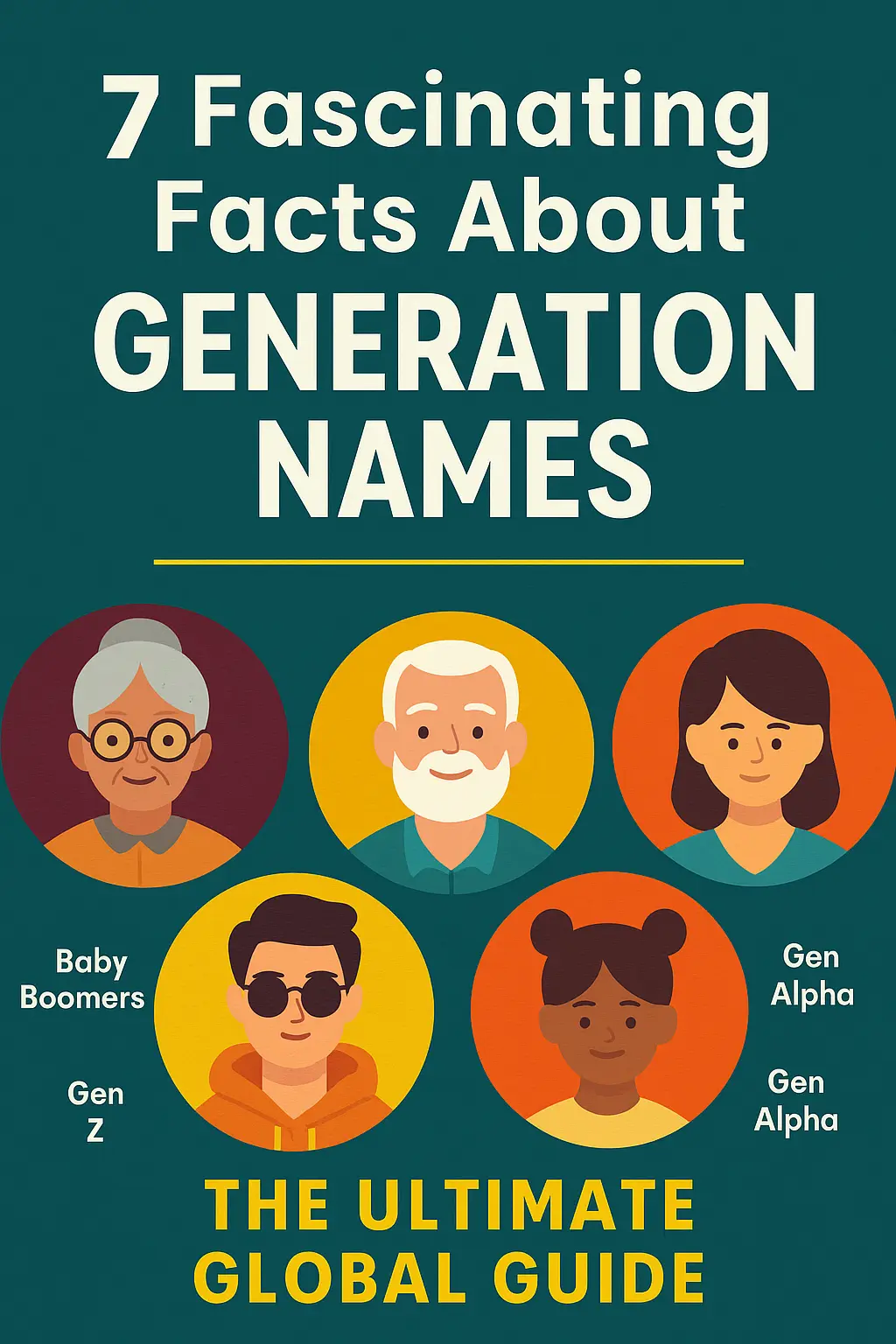
7 Fascinating Facts About Generation Names. The Ultimate Global Guide
Generation names are labels for groups of people born in the same era who share cultural, historical, and social experiences. Here’s everything you need to know.
Why We Talk About Generations
Every few decades, society changes in ways that shape how people think, work, and live. These shifts create shared experiences that define age groups known as generations.
How Generation Names Are Decided
- Demographic research and studies
- Media and cultural influence
- Historical events and technological shifts
List of Common Generation Names and Years
| Generation Name | Birth Years | Key Traits / Events |
|---|---|---|
| Baby Boomers | 1946–1964 | Postwar boom, space race |
| Generation X | 1965–1980 | Personal computers, Cold War end |
| Millennials (Gen Y) | 1981–1996 | Internet rise, social media |
| Generation Z | 1997–2012 | Smartphones, streaming |
| Generation Alpha | 2013–2025 | AI-native, pandemic childhood |
| Generation Beta | 2026–2039 (est.) | Immersive tech, space exploration |
Global Perspective
While English terms like Millennials and Gen Z are common, many countries have their own generational labels that reflect local history and culture.
FAQs About Generation Names
- What is the newest generation called?
- The newest widely discussed group after Generation Alpha is often called Generation Beta. It is projected to start around 2026. Names and boundaries may change as research evolves.
- Are generation names the same worldwide?
- Not always. Global labels like Millennials and Gen Z are common, but many countries also use local names that reflect their own historical context.
- Who decides generation names?
- There is no official authority. Researchers, media, and the public together shape the names that gain wide acceptance.
- Why do birth years vary between sources?
- Generational boundaries are estimates rather than strict cutoffs. Major events and cultural changes affect where lines are drawn.
Categories:
